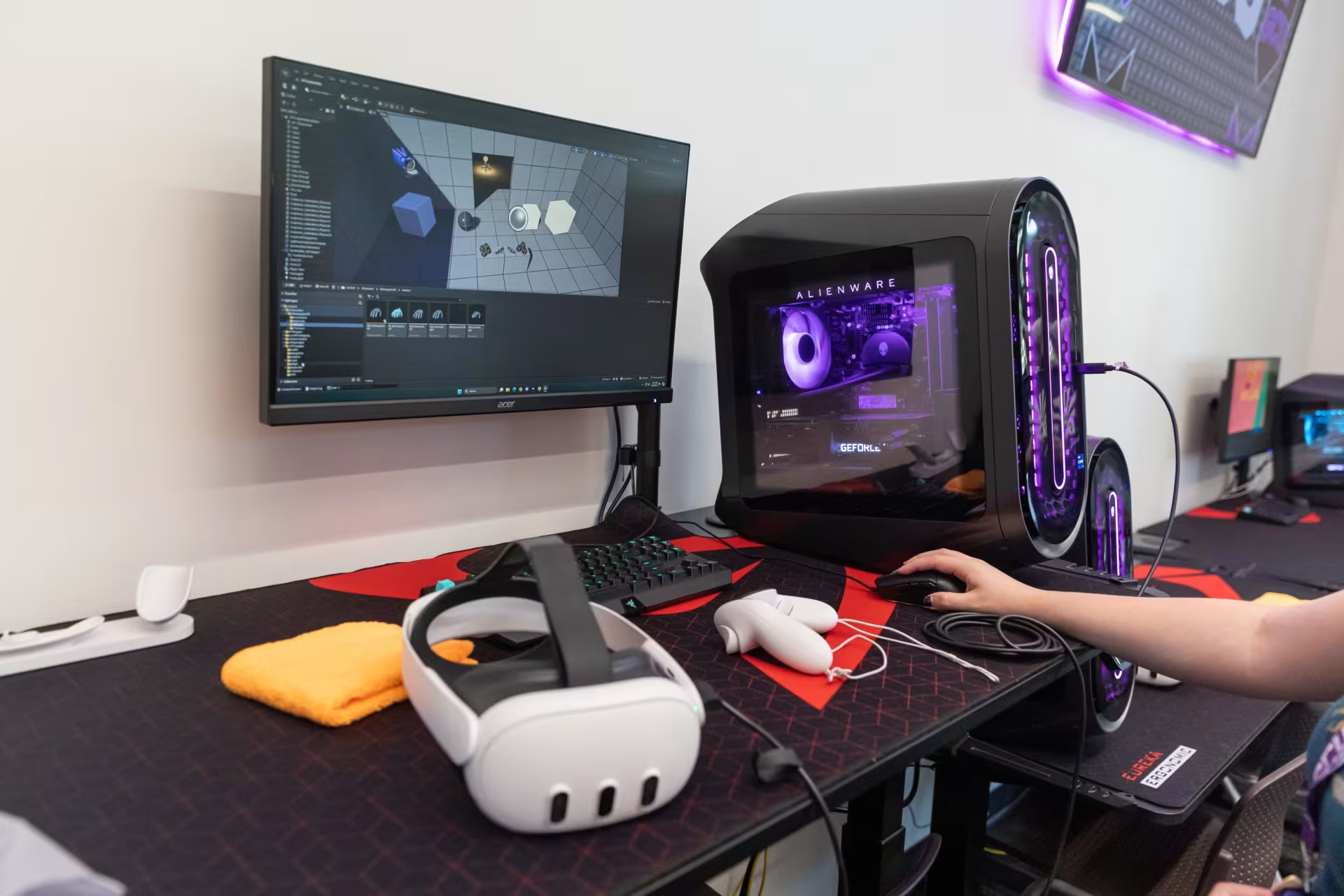
Online BA in Game Design Degree
Build a Foundation in Game Design, Game Marketing and Game Theory
Our BA in Game Design can equip you with creative and strategic skills to design engaging, user-centered experiences across platforms. This program teaches you to create interactive digital experiences, from app-based games to educational tools and corporate training programs.
Through design, marketing and theory-based coursework, you can develop your skill set to contribute to diverse career opportunities, designing for both analog, mobile and digital games. You will also explore how gamification is used to enhance presentations, employee development, training programs in K-12 and higher education and other workplace environments.
Up to 90 credits, only 84 can be lower division
Credits: Fill out the Lopes Eval to find out what will transfer
Admission Requirements (Bachelor's)
- 16+ years old
- High School Graduate
- 3.0+ Unweighted GPA
OR 2.5+ Unweighted GPA and
- ACT: 19
- SAT: 1000*
Admission requirements may differ based on degree level, program and modality, or transfer status. Some programs of study may require a higher GPA and/or other qualifying criteria for admission. Please review full admission and program requirements in the University Policy Handbook.
*Math and reading only on a 1600 point scale (test date after 3/1/2016). SAT score of 1380 required for 2400 point scale (test date before 3/1/2016).
Join a Community of Creatives at GCU
GCU is proud to foster a community of vibrant creatives who are passionate about different areas of art, including design. As a student in the College of Arts and Media, you’ll have the opportunity to collaborate creatively with other arts students from programs such as film, dance, music and other design degrees. Students who enroll in the bachelor’s degree in game design on campus may also explore different arts and media clubs and academic groups to further enlighten their academic experiences.

Earn Your Game Design Degree Online
We present aspiring game designers with the opportunity to complete their BA in Game Design online. Our online programs offer you quality learning with an added element of convenience. As you complete your online game design degree, you will have access to online resources and a community of other online students and faculty, ready to assist you with questions or concerns.
Explore the Expanding Influence of Game Design
Game design is a growing field. According to a 2024 report, 190.6 million Americans play video games weekly.(See disclaimer 1) Beyond entertainment, businesses harness game-based elements and interactive design to boost engagement, improve learning outcomes and drive results. Many sectors have increased their use of gamification technology — even including virtual reality (VR) — in their meetings, presentations and trainings to create more engaging experiences for employees and consumers.(See disclaimer 2)
With the increasing prevalence of game play for personal and professional use, it becomes imperative to stay on top of relevant design metrics and new technology. This creates a unique opportunity for those skilled in creation and gaming to turn their passions into a professional pathway.

Game Design Courses and Topics
Aside from your general education courses, you will also complete specific core courses critical to your understanding of the field and in helping you develop a strong foundation of knowledge for your future career.
Topics you will explore in your program include:
Game industry
Game design
Visual arts
Game engines
Marketing and game promotion
2D motion design
3D modeling design
World building
Buyer/consumer behavior
Game creation
Project management
Career Opportunities for Game Design Graduates

This bachelor's program aims to prepare you to enter the game design field as a skilled professional. Through your interactive design and theory courses, you will work to gain valuable skills in aspects of game creation and build your competency in design and promotion for jobs across the game design industry.
Due to the widespread use of gaming and VR technology for various purposes, graduates of this game design degree may consider careers in various industries, such as:(See disclaimer 3 )
Entertainment
Automotive
Healthcare
Real estate
Architecture
Learning and development
Education
Graduate With Your Bachelor’s Degree From an Accredited University
At GCU, we are proud to offer programs with curricula that can provide you with quality, relevant learning. GCU has been institutionally accredited by the Higher Learning Commission since 1968.
FAQs
Explore some commonly asked questions and answers to gain more information on earning this degree and beginning a career in game design.
What degree do you need to be a game designer?
Is a game design degree worth it?
Is an online game design degree respected?
Program Curriculum
General Education Requirements
Core Courses

- Fairlie, M. (2024, July 26). Top Virtual Reality Business Use Cases. Business.com. Retrieved March 21, 2025.
- Entertainment Software Association. 2024 Essential Facts About the U.S. Video Game Industry. Retrieved March 21, 2025.
- Thompson, S. (2024, Oct. 23). VR Applications: Key Industries Already Using Virtual Reality. VirtualSpeech. Retrieved March 21, 2025.
- Simmons, L. (2024, Aug. 13). How To Become a Video Game Designer. ComputerScience.org. Retrieved March 21, 2025.


